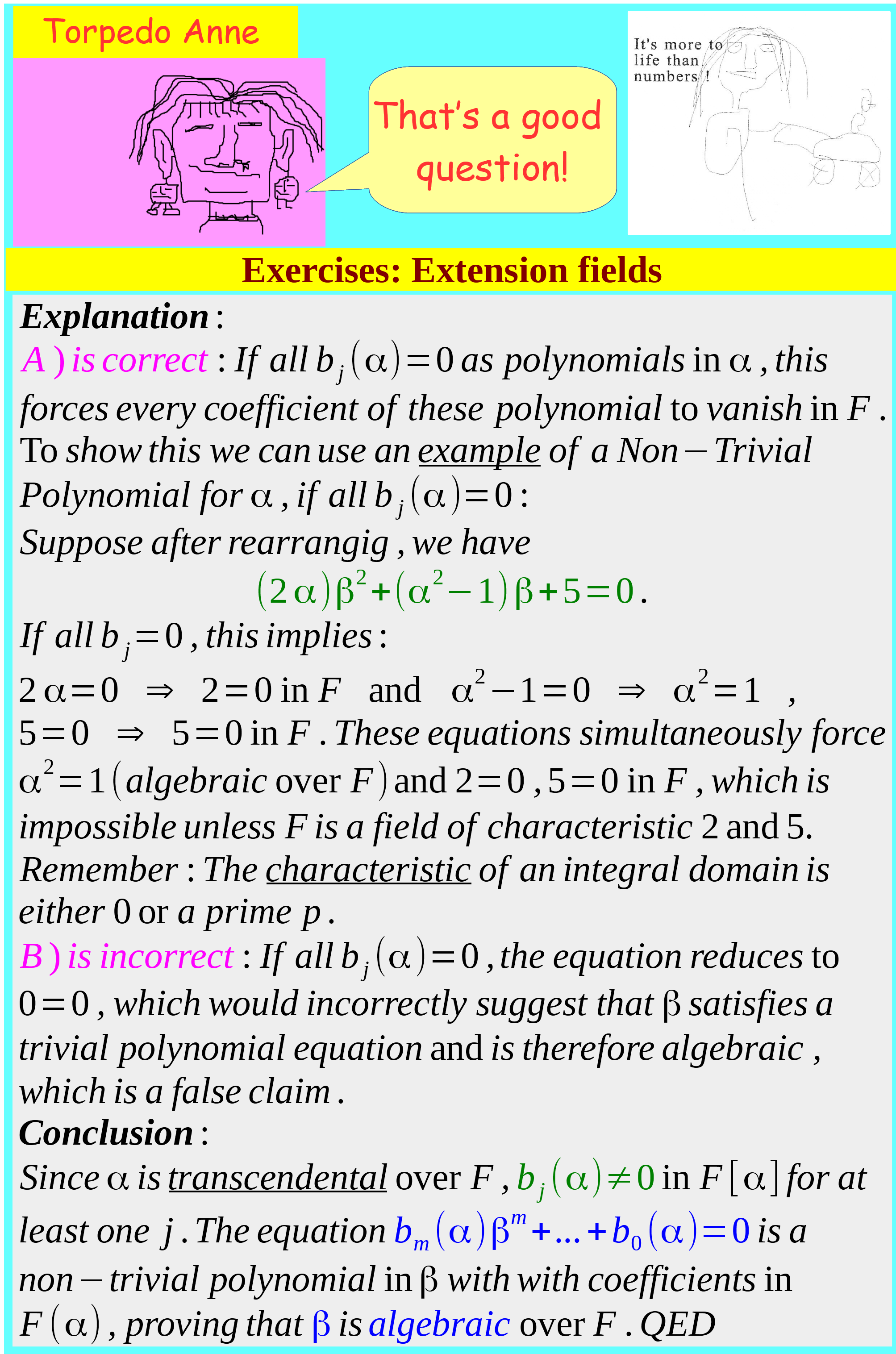page1952 Rings Matthias Lorentzen...mattegrisenforlag.com
Look at the picture beneath, then
scroll down to the question and click the correct Answer button.

Question
In the final step of the proof, why does the equation
`sum_(j = 0)^m b_j(alpha)beta^j = 0` guarantee that
`beta` is algebraic over `F(alpha)`:
A) The transcendence of `alpha` over F ensures at least
one `b_j(alpha) ne 0`, creating a non-trivial polynomial
in `F(alpha)[x]` with `beta` as a root.
B) Since `beta` is transcendental over F, it automatically
satisfies a polynomial equation over `F(alpha)`
?
